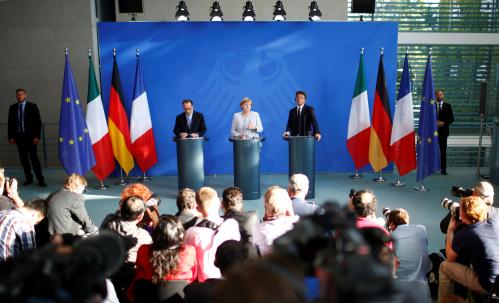Sixty years ago Mao Zedong stood before a sea of people atop Tiananmen Gate proclaiming, in his high-pitched Hunan dialect, the founding of the People’s Republic of China and that the “Chinese people have stood up!” The moment was marked with pride and hope. The communists’ victory had vanquished the Nationalist regime, withstood the vicious onslaught of the Japanese invasion and overturned the century of foreign encroachment on China’s territory. Moreover, Mao and the Chinese Communist Party (CCP) came to power without significant external support – theirs was largely a homegrown revolution.
Mao brought a vision for China that has resonated from the 19th century Qing dynasty reformers to this day: to regain China’s fu qiang (wealth and power), dignity, international respect and territorial integrity. In this regard, Mao and the CCP positioned themselves squarely with a deep yearning among Chinese – thus earning their loyalty and the party’s legitimacy. His successors have not wavered from this singular vision and mission.
Tragically, Mao’s belief in restoring China’s greatness and achieving modernity was inextricably intertwined with his ideological desire to transform China into a socialist and revolutionary society. Mao’s social engineering continually convulsed China in unrelenting political campaigns. These movements disrupted productivity and caused horrific loss of life. Yet, despite the chaos, the People’s Republic embarked on industrialization and stood up. By many measures, 60 years on, China has achieved significant progress toward becoming a major and global power. Mao may recognize it, but he would not be wholly happy with it.
As the People’s Republic of China commemorates its 60th anniversary, it seemingly has much to celebrate. China is the world’s most populous and industrious nation, is the world’s third largest economy and trading nation, has become a global innovator in science and technology, and is building a world-class university system. It has an increasingly modern military and commands diplomatic respect. It is at peace with its neighbors and all major powers. Its hybrid model of quasi-state capitalism and semidemocratic authoritarianism – sometimes dubbed the “Beijing Consensus” – has attracted attention across the developing world.
Read the full article » (external link)



Commentary
China on the Road to Prosperity
September 18, 2009